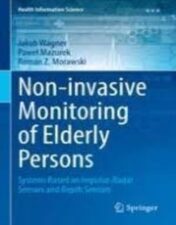Discover the Best Geriatrics Books to Enhance Your Knowledge of Aging
Discover the Best Geriatrics Books Now!
Are you looking for the best geriatrics books to help you understand the aging process and how to care for elderly patients? Look no further than SurgeryBook.net! Our selection of geriatrics books is comprehensive, covering topics such as geriatric pharmacology, geriatric assessment, geriatric syndromes, and more. With our easy-to-use search feature, you can quickly find the perfect book for your needs. Plus, we offer free shipping on all orders over $50. So don’t wait – start exploring our selection of geriatrics books today and get the knowledge you need to provide the best care for your elderly patients. Visit SurgeryBook.net now!
GERIATRICS BOOKS
GERIATRICS BOOKS
Conducting Wellness Groups for Veterans and Older Adults (EPUB)
Introduction
Are you looking to enhance your knowledge of aging and geriatrics? Look no further than our list of the best geriatrics books! From comprehensive guides to specialized topics, these books provide a wealth of information on the physical, mental, and social aspects of aging. Whether you're a healthcare professional or simply interested in learning more about geriatrics, these books are sure to help you gain a better understanding of this important field. With expert advice from leading authors, you can be sure that you're getting the most up-to-date and accurate information available. So, start exploring today and discover the best geriatrics books to enhance your knowledge of aging!
Understanding the Aging Process: Exploring the Physical and Mental Changes of Growing Older
Caring for Elderly Patients: Strategies for Providing Quality Care
Managing Chronic Conditions in the Elderly: A Guide to Effective Treatment
Managing Chronic Conditions in the Elderly: A Guide to Effective Treatment is an invaluable resource for healthcare professionals, caregivers, and family members of elderly individuals with chronic conditions. This comprehensive guide provides a comprehensive overview of the most common chronic conditions affecting the elderly population, including diabetes, heart disease, arthritis, Alzheimer’s disease, and more. It also offers practical advice on how to effectively manage these conditions, from lifestyle modifications to medication management.
The guide begins by discussing the importance of understanding the unique needs of the elderly population when it comes to managing chronic conditions. It explains why it is important to recognize the physical, mental, and emotional changes that can occur as a result of aging, and how these changes can affect the way chronic conditions are managed. It also provides information on the various types of treatments available for each condition, including medications, lifestyle modifications, and alternative therapies.
The guide then goes into detail about the different types of medications used to treat chronic conditions in the elderly. It discusses the benefits and risks associated with each type of medication, as well as how to properly monitor their use. It also provides tips on how to ensure that medications are taken correctly and safely.
The guide also covers the importance of lifestyle modifications in managing chronic conditions in the elderly. It explains how diet, exercise, and stress management can help improve overall health and reduce the risk of complications from chronic conditions. It also provides information on how to create a supportive environment for elderly individuals with chronic conditions, such as providing access to social activities and support groups.
Finally, the guide provides information on how to effectively communicate with healthcare providers and family members about the care of elderly individuals with chronic conditions. It explains how to discuss treatment options, provide support, and ensure that all parties involved understand the importance of following through with treatment plans.
Managing Chronic Conditions in the Elderly: A Guide to Effective Treatment is an essential resource for anyone caring for an elderly individual with a chronic condition. It provides valuable information on how to effectively manage chronic conditions, while also offering practical advice on how to create a supportive environment for those affected.
End-of-Life Care for the Elderly: Navigating the Challenges of Death and Dying
End-of-life care for the elderly is a difficult and emotional process. It involves navigating the challenges of death and dying, both for the elderly person and their family. End-of-life care is an important part of providing quality care for the elderly, and it requires careful planning and consideration.
The first step in end-of-life care is to understand the elderly person’s wishes. This includes discussing their preferences for medical treatments, such as whether they would like to receive life-sustaining treatments or not. It also includes understanding their spiritual beliefs and any other wishes they may have regarding their end-of-life care.
Once these wishes are established, it is important to create a plan for how to best provide care for the elderly person. This includes deciding who will be responsible for providing care, what type of care will be provided, and where the care will take place. It is also important to consider the financial implications of end-of-life care, such as the cost of medications, medical equipment, and other services.
In addition to creating a plan for care, it is important to provide emotional support for the elderly person and their family. This includes providing comfort and reassurance, listening to their concerns, and helping them cope with the changes that come with end-of-life care. It is also important to provide resources and information about end-of-life care, such as hospice care and palliative care.
Finally, it is important to remember that end-of-life care is a journey, and it is important to be patient and understanding throughout the process. Death and dying can be a difficult and emotional experience, but it is important to remember that it is a natural part of life. With the right support and resources, end-of-life care can be a meaningful and rewarding experience for everyone involved.
Financial Planning for Retirement: Preparing for a Secure Future
Retirement is a time of life when individuals can finally enjoy the fruits of their labor and relax after years of hard work. Financial planning for retirement is essential to ensure that you have enough money to live comfortably during your golden years. Retirement planning involves setting goals, assessing your current financial situation, and creating a plan to reach those goals.
The first step in financial planning for retirement is to set realistic goals. Consider how much money you will need to maintain your desired lifestyle in retirement. Think about what type of lifestyle you want to lead, such as traveling or staying close to home. Also consider any medical expenses you may incur in retirement. Once you have determined your goals, you can begin to assess your current financial situation.
Next, you should review your current income sources and expenses. This includes wages, investments, Social Security benefits, pensions, and other sources of income. You should also consider any debts you may have, such as credit card debt or student loans. Once you have a clear picture of your current financial situation, you can begin to create a plan to reach your retirement goals.
When creating a retirement plan, it is important to consider both short-term and long-term goals. Short-term goals may include saving for a down payment on a house or car, while long-term goals may include saving for retirement. It is also important to consider the types of investments you make. Investing in stocks, bonds, mutual funds, and other securities can help you build wealth over time.
Finally, it is important to review your retirement plan regularly. As your financial situation changes, so should your retirement plan. Make sure to adjust your plan accordingly to ensure that you are on track to reach your retirement goals.
Financial planning for retirement is an important part of preparing for a secure future. By setting realistic goals, assessing your current financial situation, and creating a plan to reach those goals, you can ensure that you have enough money to live comfortably during your golden years.
Conclusion
In conclusion, geriatrics books are a great way to enhance your knowledge of aging. Whether you’re looking for an introduction to the field or a comprehensive guide to the latest research and treatments, there is a book out there that can help you gain a better understanding of the aging process. With so many options available, it can be difficult to know which books are the best. To make your search easier, we’ve compiled a list of the top geriatrics books to help you discover the best one for your needs. We hope this list has been helpful in finding the perfect book to help you learn more about geriatrics and aging.






























